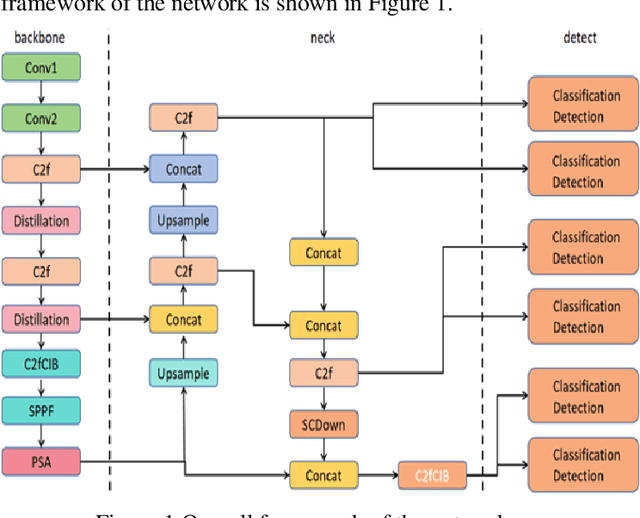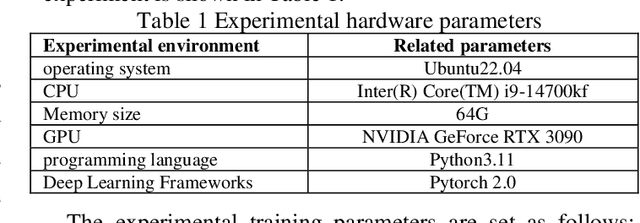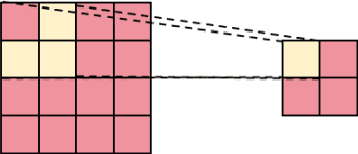Optimizing YOLOv5s Object Detection through Knowledge Distillation algorithm
Paper and Code
Oct 16, 2024



This paper explores the application of knowledge distillation technology in target detection tasks, especially the impact of different distillation temperatures on the performance of student models. By using YOLOv5l as the teacher network and a smaller YOLOv5s as the student network, we found that with the increase of distillation temperature, the student's detection accuracy gradually improved, and finally achieved mAP50 and mAP50-95 indicators that were better than the original YOLOv5s model at a specific temperature. Experimental results show that appropriate knowledge distillation strategies can not only improve the accuracy of the model but also help improve the reliability and stability of the model in practical applications. This paper also records in detail the accuracy curve and loss function descent curve during the model training process and shows that the model converges to a stable state after 150 training cycles. These findings provide a theoretical basis and technical reference for further optimizing target detection algorithms.
 Add to Chrome
Add to Chrome Add to Firefox
Add to Firefox Add to Edge
Add to Edge